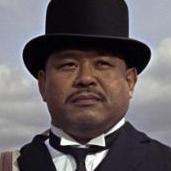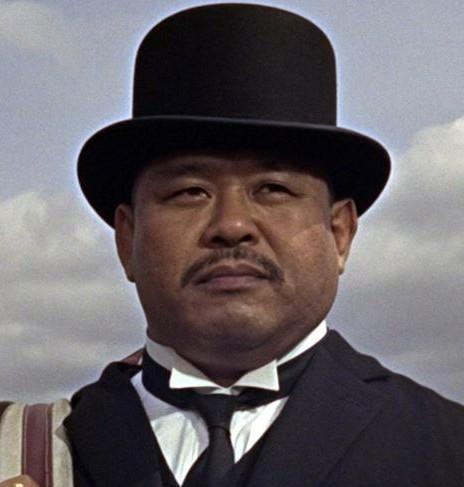-
Posts
12,924 -
Joined
-
Last visited
Content Type
Profiles
Forums
Events
Blogs
Everything posted by Teasing the Korean
-
I have accumulated a number of these over the years. While many are complete schlock, there are some gems in the realm of orchestral pop, light classics, and film scores. All of my copies are U.S. pressings, and most of them have very heavy compression and limiting, bordering on distortion, similar to what was typically heard on Command LPs during that era. However, I have heard that the compression/limiting was used only on the U.S. versions, perhaps to compete with Command, while the U.K. pressings had a more natural dynamic range (and less distortion). Does anyone know anything about this?
-
Most artists start to lose it by this point in their career, with a few exceptions. Listen to the good stuff.
-
I will never listen to artist who has this for one of his album covers.
-

John Coltrane in 80 minutes?
Teasing the Korean replied to LouisvillePrez's topic in Recommendations
That works for some artists but not others. If we are talking about a single Coltrane CD, I would not want a CD that includes both "Bye Bye Blackbird" and "A Love Supreme" on the same disc. The OP would do better to do a stylistic compilation that will work as an album. If the disc includes such a wide range of music that there is no cohesive flow, the recipient will probably end up using the disc as a coaster. IMO. -

RIP Leonard Nimoy
Teasing the Korean replied to Hardbopjazz's topic in Miscellaneous - Non-Political
Here is a Nimoy tidbit that may be of interest to some of you. (I did not see this mentioned in the obits.) The part of Boston where Nimoy grew up was called the West End. It was an ethically diverse neighborhood filled with what would now be prime real estate right in the center of the city. The neighborhood was leveled circa 1960 in the name of "urban renewal." The densely-packed housing was replaced with a couple of high rise towers and some sprawling municipal monstrosities in the brutalist architectural style. The residents couldn't afford to move back into the high-rises, and even if they could, there weren't enough units to accommodate the number of residents. Decades later, the neighborhood's destruction remains a sore spot for many Bostonians, and to this day, it is universally acknowledged as a textbook example of how not to do urban renewal. One day in the 1940s, someone in the West End snapped a picture of some boys who were outside playing in a field. The boy on the top right is Leonard Nimoy: http://thewestendmuseum.org/wordpress/wp-content/uploads/2013/01/leonard_nimoy.jpg Like many West Enders, Nimoy kept the neighborhood with him. He named his boat the West End, and was a generous contributor to the West End historical society. Here is a clip where he discusses the West End: -

RIP Leonard Nimoy
Teasing the Korean replied to Hardbopjazz's topic in Miscellaneous - Non-Political
Very sad. Nimoy was an important part of my childhood who somehow managed to stay with me into adulthood, whereas others dropped off. Since this is a music-related forum, may I also add at this time that the Star Trek music that I heard as a kid played a very pivotal role in piquing my interest in film scores, jazz, and classical music. LLAP. -
I see not contradiction either, but apparently that guy who was quoted sees a contradiction. That is a nice outlook, but I will forever associate Monk with architecture and modernism. "Epistrophy" is like "Powerhouse Part 2" for me.
-
There is/was an inexpensive CD comp of her stuff in the Verve bossa series that came out in the mid- to late-whatever-the-hell-you-call-that-decade-we-finished-five-years-ago.
-
I disagree with at least two of the points he made. Monk's music is always "serious?" I am wrong for finding joy or humor in Monk's music? And while, yes, Monk's music is rooted in the past, I see Monk ultimately as a futurist, and I file his albums along with other great futurists of music, including Raymond Scott and Esquivel. It may be an odd filing system, but it works for me.
-
So I have: Cul-de-Sac Knife in the Water Rosemary's Baby Fearless Vampire Killers Le Depart Bariera Astigmatic. "Astigmatic" is the only non-soundtrack album I have by Komeda. There seems to be a general consensus that it is his best and/or "most important" jazz album. Are there other albums by Komeda that anyone can recommend?
-

FS Thelonious Monk Complete Riverside cd box
Teasing the Korean replied to Pete B's topic in Offering and Looking For...
OK, I'll bite. So how much is on here that did not make it to the original Riverside LPs or CDs? -

Verve - The Bottomless Pit Of "Who Knew?"
Teasing the Korean replied to JSngry's topic in Discography
I think it's so groovy now that people are finally getting this list together. -

Ramsey Lewis and Philip Bailey Touring
Teasing the Korean replied to Teasing the Korean's topic in Live Shows & Festivals
Yeah, that! Killing When he plays that glissando on the Rhodes that goes to the chorus, on the iv minor chord, it is ORGASMIC. -
That may be true, but unfortunately, that is not the case with songs of the rock era. Otherwise, all of the grammatically incorrect teen pop from that era that is still played would be forgotten. The early Beatles are one obvious example.
-

John Coltrane in 80 minutes?
Teasing the Korean replied to LouisvillePrez's topic in Recommendations
I would place parts of "A Love Supreme" on my comp along with "My Favorite Things" and leave out "Giant Steps." Not sure what you mean. -

John Coltrane in 80 minutes?
Teasing the Korean replied to LouisvillePrez's topic in Recommendations
Considering the range of music in Coltrane's catalog, I would go for a thematic presentation, rather than attempt to offer a full-career retrospective in 80 minutes. This will make the compilation valuable on its own terms, and would lend itself to repeated, continuous listening. In light of this, I would probably focus on the hypnotic, modal grooves he did with the classic quartet. I would avoid both the post-bop and the later out stuff. Why? Because if the listener doesn't know Coltrane, you can probably assume a limited experience with jazz overall. The hypnotic, modal, repetitive stuff lends itself to both focused listening and groovy chillout-background music. It works on a subliminal, subconscious level. -
Lots of rock and teen pop songs from the 1950s and 1960s had poorly written lyrics that frequently mixed up object and subject pronouns. As a result, many of the boy-girl scenarios included an inadvertent gay or a bisexual element. Interesting, then, that these lyrics are simultaneously juvenile while being decades ahead of their time, albeit accidentally so.
-

Ramsey Lewis and Philip Bailey Touring
Teasing the Korean replied to Teasing the Korean's topic in Live Shows & Festivals
Well, I checked out some YouTube vids and I was underwhelmed. Philip Bailey does the "point the mic at the crowd" schtick and has them sing. I could probably get into this show for free, but I'd rather spend the night at home listening to LPs. When I used to DJ, this album was perpetually in the crate, for this track: -

FS Thelonious Monk Complete Riverside cd box
Teasing the Korean replied to Pete B's topic in Offering and Looking For...
Maybe everyone is afraid to buy it for that very reason! -
These guys are touring. In light of Stevie Wonder's recent Songs in the Key of Life tour, is it wishful thinking on my part to expect an early-70s, clavinet-through-wah-wah, Fender-Rhodes-soaked Sun Goddess funk frenzy? Or is it more likely I will be seeing two aging guys doing a tepid set of R&B chestnuts and smooth jazz?
-

Anatomy of a Murder - Duke Ellington
Teasing the Korean replied to Teasing the Korean's topic in Discography
The album sessions were done at Radio Recorders. I have not been able to find a location for the film sessions. But the film sessions comprised the bulk of the music heard in both the film and on the LP. So it may have been done on a soundstage with less than optimal recording quality. -

Anatomy of a Murder - Duke Ellington
Teasing the Korean replied to Teasing the Korean's topic in Discography
Good points. I will have to look into the recording details. I do know that there were in theory separate album and film sessions, but because of the late date, the label and studio agreed that everything was up for grabs. So the album may have had a mixture of film tracks and album tracks. However, wherever it was recorded, the reverb was added subsequently. It is not on the expanded CD, but the latter doesn't sound that good. It is harsh, shrill, and the balances are way off, at least on several of the selections. -

Whereabouts of Walter Bishop Jr with his cat "JJ" cover photog
Teasing the Korean replied to jujus7's topic in Discography
What became of JJ? -

Anatomy of a Murder - Duke Ellington
Teasing the Korean replied to Teasing the Korean's topic in Discography
The reverb is on both the mono and stereo versions of the LP. The reverb is not on the expanded CD, but it sounds shrill off balance anyway. Would love to know what happened with this album.
_forumlogo.png.a607ef20a6e0c299ab2aa6443aa1f32e.png)
